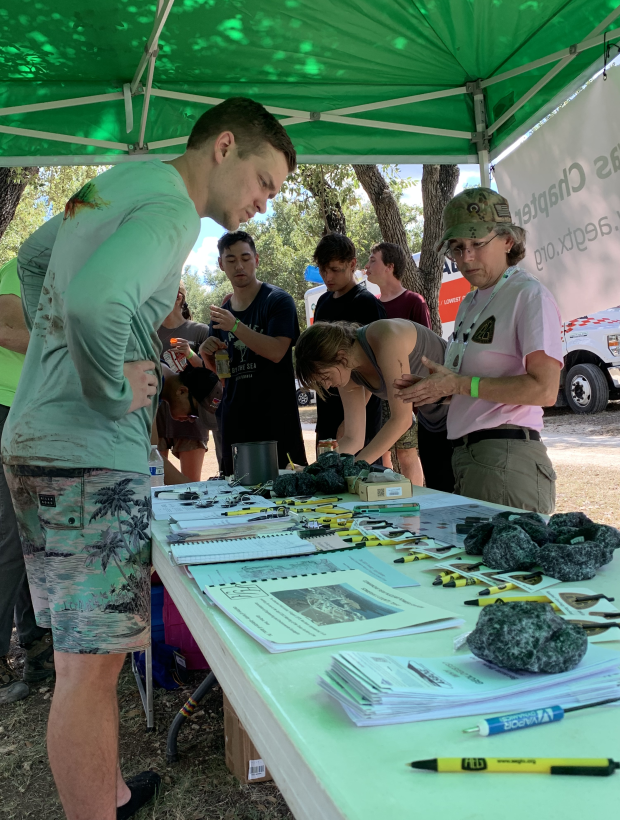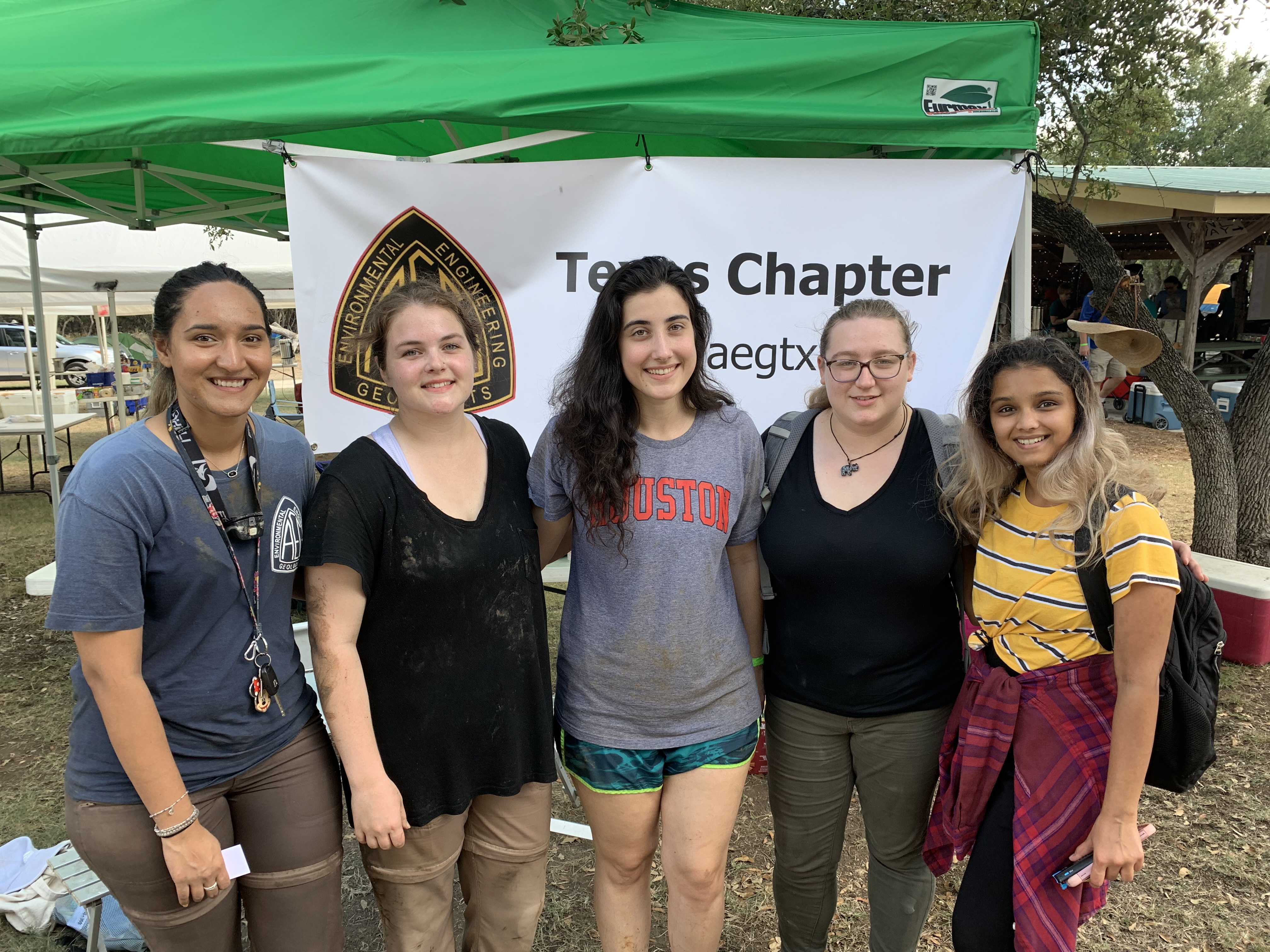What coursework should I take to become a successful Applied Geoscientist?
What is a geoscientist? Geoscientists (also often called geologists or geophysicists) study the physical aspects of the earth to inform practical applications in engineering, energy production, water conservation, hazards and more. They may work to find and preserve natural resources like groundwater, metals, and petroleum. Geoscientists often perform laboratory and field tests to monitor the environment and investigate sources of pollution, including those that affect health.
Some qualities that are essential for a career in geosciences include:
- An interest in the sciences, especially geology, environmental science and earth sciences;
- An enjoyment of traveling and working in the outdoors;
- A comfort with using computers and software;
- An aptitude for and interest in mathematics.
If this sounds like you, you should consider a career as an Applied Geoscientist! The median income for a career as a Geoscientist is about $90,000 per year, and the future job prospects are good.
(Photo right: : Cynthia Palomares, AEG President discusses rock and mineral identification to K-12 students at the Sally Ride Festival at Rice University in Houston Texas.)
Preparing to Become an Applied Geoscientist
If you are a high school student who is interested in a future career as an Applied Geoscientist, take as many challenging science classes as you can, to start preparing for your future career. Earth Sciences, Geology, Physics, Chemistry, Biology, Mathematics and Computer Science courses will all help lay the foundation for the types of coursework you will need to complete at the college level.
If you’re passionate about the geosciences and think that you might want to make it your career, consider joining the Association of Environmental & Engineering Geologists. It’s free for full-time students and will give you a great chance to meet working geoscientists and learn about the type of work they do. (Plus, it will look great on your college applications!)
College Courses to Become an Applied Geoscientist 
Most professionals in this field need at least a bachelor’s degree in geosciences, geology or geophysics for entry-level positions. Some geoscientists also complete a master’s degree. To graduate with a bachelor’s degree in a geoscience major, you will be expected to complete a well-rounded curriculum with a heavy emphasis on geology, chemistry, physics and other related science courses.
For a list of schools that offer geoscience degrees and also have a dedicated AEG student chapter, visit our Student Chapter page.
( Photo right:Students perusing AEG materials at a Karst workshop.)
In addition to your required coursework as a geosciences major, there are a number of other helpful courses that you should consider taking:
Surveying. Not all geoscience majors are required to take surveying, but if your school offers this, do take it! A surveying course helps with understanding mapping, different coordinate systems, equipment familiarity, and GIS data collection to name a few. Having an understanding of surveying also helps you communicate with clients, subcontractors and property owners for the sites on which you'll be working.
Technical Writing. Writing scientific papers and reports is quite different than the essays you may be composing in your literature and creative writing classes. The ability to write technical papers well is a highly desirable skill.
GIS (Geographic Information Systems). GIS is an increasingly important component in a whole variety of mapping, planning and engineering projects. A basic understanding of GIS and related software will be vital for even an entry-level position.
Public Speaking. Did this one surprise you? Many science-types prefer to remain in the background, but you may be called upon to present your work to clients, coworkers, government entities or at conferences. A public speaking course can be invaluable to help you get past your jitters and showcase your work effectively.
Business and/or Economics. No matter where you work, you will need to have an understanding of budgets and the economics of a project. Especially if you are considering a career involving commodities (like oil and mining), you will benefit greatly from a better understanding of the market and how business decisions are made.
In summary, Applied Geoscience is a challenging and fulfilling field for anyone who enjoys studying the processes of the earth and applying that knowledge within a variety of industries. If you have questions or would like to learn more about a career in Applied Geoscience, we hope you will contact us and get in touch with a local chapter of AEG!

(AEG University of Houston Student Chapter officers)

The 1-2 courses that I most often recommend for applied geologists are soil and rock mechanics. Neither course is offered in a 'typical/traditional' geology department and are most likely over in the engineering department. I rank soil mechanics as the higher priority of the two. Depending on the course of one's career, you'll likely interact with engineers. If those engineers are geotechnical and/or general civil engineers, soil mechanics will have you able to speak the language the engineer understands. Plus, it will give you a very important understanding of unconsolidated material properties. Rock mechanics is the same way - it creates a way for you to speak with engineers about the physical properties that are needed for design concerns (and stability concerns, which is fun work).
So I never imagined I would conceive of, let alone run, a geoscience consulting company for 20+ years, but here I am. I never took Economics, Business anything, but I did take several courses that I remember back to as important. Technical Writing - literally everything you do requires a technical report, and if you cannot write it, someone else will and they will be paid and promoted more than you. Geomorphology - the first thing you see when you walk onto a client’s property is the landscape and landforms. If you cannot “see” and appreciate what you are seeing, you are at a significant professional and technical disadvantage to those who can. Faults, landslides, terraces, they are all there to see. Take geomorphology several times from different professors, and challenge them. Field trips - go on ALL of them. The best geologist has seen more geology than the book-learned geologist. When on your field trips, ask questions, and make the leaders defend their interpretations. Learn to Learn and Think - these are not classes per se, but you really do need to use your academic environment to learn how to learn. This means think in class, not just remember, but actually link what is being taught to what is, might be, could be related to it. Move past the known and be aware that paradigms are intellectual paralysis. Learn to think for yourself. It will really pay off, especially if you turn out to be correct. Oh, and get engaged in your profession, especially AEG. It has worked out for me, or perhaps that is just my paradigm? Good luck.